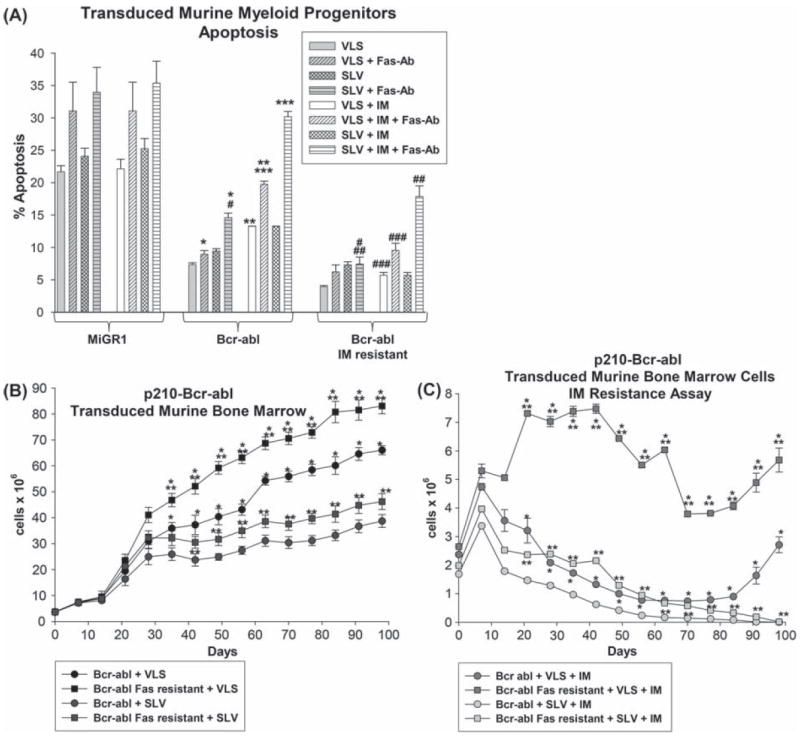Figure 9.

Fap1-dependent Fas insensitivity influences development of IM resistance in Bcr–abl+ myeloid progenitor cells. (A) IM resistance decreases Fas sensitivity in Bcr–abl+ primary murine myeloid progenitor cells. Primary murine bone marrow cells were transduced with a vector to express Bcr–abl or with vector control and cultured under GMP conditions. Some Bcr–abl+ cells were treated with increasing doses of IM to induce in vitro TKI resistance, as described above. Cells were pretreated with SLV versus VLS, and high-dose IM (5 μM) versus sham treatment, followed by treatment with Fas-agonist Ab (or control). Apoptosis was determined by flow cytometry for annexin V staining. Statistically significant differences in apoptosis are indicated by *, **, ***, #, ## or ### (p<0.001, n = 4). (B) Fas-resistant Bcr–abl+ primary murine myeloid progenitor cells expand more rapidly in vitro in comparison to the total Bcr–abl+ population. Primary murine bone marrow cells were transduced with a vector to express Bcr–abl and cultured under GMP conditions with SLV or VLS peptide. Prior to culture, some cells were treated with a Fas-agonist antibody, and apoptotic cells were removed (indicated as the Fas-resistant population). Viable cells were counted each week. Statistically significant differences in cell numbers at a given time point are indicated by *, ** or *** (p<0.01, n = 3). (C) Fap1-blocking SLV peptide impairs development of IM resistance by Bcr–abl+ cells in vitro. Primary bone marrow cells were transduced with a Bcr–abl expression vector and some cells were depleted of the Fas-sensitive subpopulation, as above. Cells were cultured under GMP conditions with or without an increasing dose of IM (0.2 μg/mL to 2.0 μg/mL over 6 weeks), with SLV or VLS (control) peptide in the culture. Viable cells were counted each week. Statistically significant differences in cell numbers at a given time point are indicated by *, ** or *** (p<0.01, n = 3).
